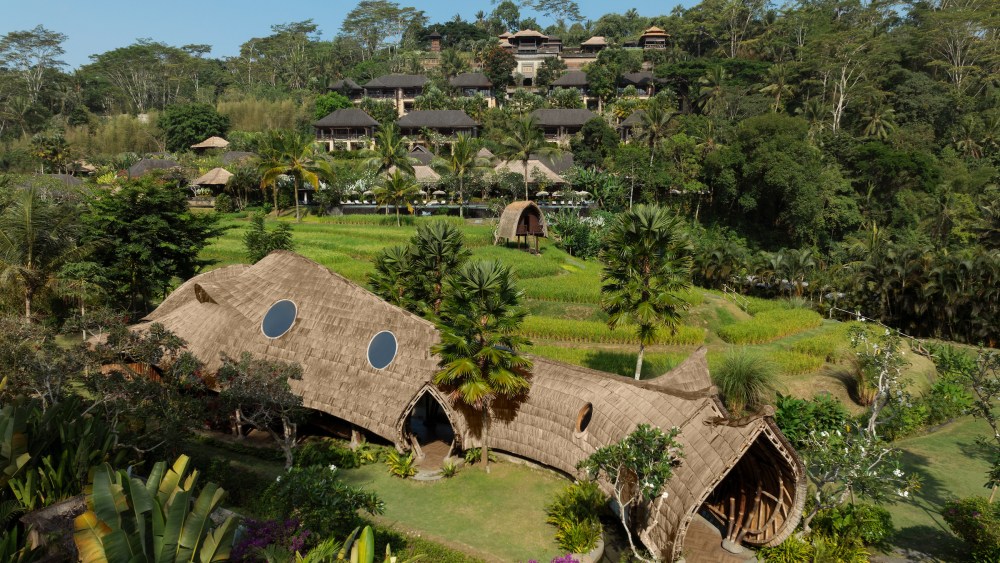The Ritz-Carlton has long been synonymous with quality service and luxury, but today’s hospitality landscape demands more than white-glove formality, according to Tina Edmundson, Marriott International’s president of luxury. As a generational shift in luxury consumers reshapes the travel industry, the storied hotel company is reimagining what luxury means in the 21st century — trading grandiose displays for authentic cultural immersion, intuitive service and personalized experiences that create memories.

“Customers have evolved,” Edmundson explained. “There was this formality to luxury 15 or 20 years ago which just doesn’t exist today. With the internet and the younger consumer being so much less formal, service now is not about the ostentatious, it’s not about white gloves or white tablecloth. It’s really about authenticity, about being connected to the locale, feeling a sense of cultural immersion that is more important.”
For a brand built on the foundation of anticipating guests’ needs, perhaps the most luxurious offering today is the ability to provide transformative experiences that guests didn’t even know they wanted — but will never forget.
You May Also Like
Cultural Authenticity Over Cookie-cutter Luxury
Edmundson pointed to recent openings that exemplify this new approach. The Ritz-Carlton Bangkok, which debuted in December, embraces the concept of “Meeting of Two Civilizations” — honoring Thailand’s tradition of blending local heritage with international influences. The brand doesn’t impose a standardized luxury template, creating a look and feel that is modern, but also very local.
“If you are in Dubai, if you’re in Saudi, it should feel like it belongs there, versus something that is just plopped right over there,” Edmundson emphasized.
In Bangkok, the design took a very considered approach, incorporating Thai silks, traditional wood carvings and an extensive contemporary art program that is reflective of the place. In the bustling city among the high rises, the property incorporates cultural programming like daily “Klong Yao” drum ceremonies.

The philosophy extends to intimate properties like Mandapa, a Ritz-Carlton Reserve in Bali, Indonesia. Set along the Ayung River in Ubud amid rice terraces, the property offers guests the chance to participate in traditional rice planting and harvesting. The village atmosphere includes organic gardens, educational programs for children and dining experiences that celebrate local ingredients and culinary traditions.
Modern luxury travelers, particularly Gen Z, prioritize experiences over material possessions — a shift that plays directly into The Ritz-Carlton’s strengths. At The Ritz-Carlton Bali in Nusa Dua, guests can participate in “market to table” cooking classes led by the property’s chefs, which begin with earl-morning trips to Jimbaran Market to select fresh seafood and local produce before learning to prepare traditional dishes in the resort’s Culinary Cave overlooking the Indian Ocean.
The property also offers a “Soul Purification Ritual,” an authentic Balinese ceremony performed on secluded beaches at sunrise. Guided by a Balinese priest, guests undergo spiritual cleansing with holy water. These authentic touch points create the kind of shareable, meaningful moments that resonate with social media-savvy travelers.
Wellness as a Universal Language
Edmundson identifies wellness and adventure travel as the two primary trends driving luxury hospitality today, noting their cross-generational appeal. This focus extends beyond traditional spa offerings to holistic programming. “Today it is about IVs and cryotherapy and hydrotherapy — that’s what’s hot right now,” Edmundson explained. Through partnerships like that with Larry Ellison’s wellness brand Sensei at The Ritz-Carlton Zadún in Mexico, The Ritz-Carlton properties are able to offer science-based wellness experiences using advanced technology like infrared scanning to detect inflammation and develop customized treatments.
“The focus on wellness isn’t a fad, it’s here to stay. The high-net-worth person tends to be much more in tune and looking for those things when they travel because, to them, those are the markers of luxury.”
Strategic Partnerships and Technology
Brand collaborations have become another avenue for cultural relevance. The Missoni partnership at The Ritz-Carlton properties adds vibrant Italian design sensibilities, while last year’s “Late Checkout” streetwear collaboration appealed to younger demographics who might not automatically associate urban fashion with traditional luxury hospitality.

“We don’t do partnerships just to say we have a partner,” Edmundson said. “It has a deeper purpose. Having a partnership like Missoni really adds a layer of richness to the guest experience. Sometimes it’s a surprise — you thought you were going to a Ritz-Carlton, but in addition to that, you have this amazing Missoni experience.”
Rather than replacing human service, artificial intelligence is enhancing the hospitality industry’s ability to deliver personalized experiences at scale. “AI removes all of the functional stuff that our associates have to do in order to enhance a guest stay and allows the associate to really offer a very high-touch experience enabled by tech that we have behind the scenes,” Edmundson explained.
This approach aligns with changing guest expectations — younger travelers want service that anticipates their needs without being intrusive.
The Future of Luxury Travel
The customer base itself is shifting. Post-COVID-19, Edmundson noted, “the whole mindset changed to where ‘life is short, and I’m not going to just put things on my bucket list. My bucket list has become my to-do list.’”
She said this urgency spans demographics, from ultra-high-net-worth travelers with $30 million-plus in disposable income to “aspirational” guests with less than $1 million who will save extensively for one transformative luxury experience. Gen Z travelers, in particular, “will save to take that one trip — they will save to make sure that they’re eating at that Michelin star restaurant, because those memorable moments are important to them.”
As The Ritz-Carlton continues to expand into new markets like Saudi Arabia’s Red Sea development and ventures into adventure travel with African tented lodges, the brand’s evolution reflects broader changes in how luxury is defined and consumed. Success lies not in maintaining stuffy traditions but in honoring the brand’s service excellence while adapting to changing values around authenticity, wellness and cultural respect.
“The storytelling is the thing that keeps the brand relevant,” Edmundson contended. “We talk about cultural relevance and staying in the zeitgeist of what is going on.”



